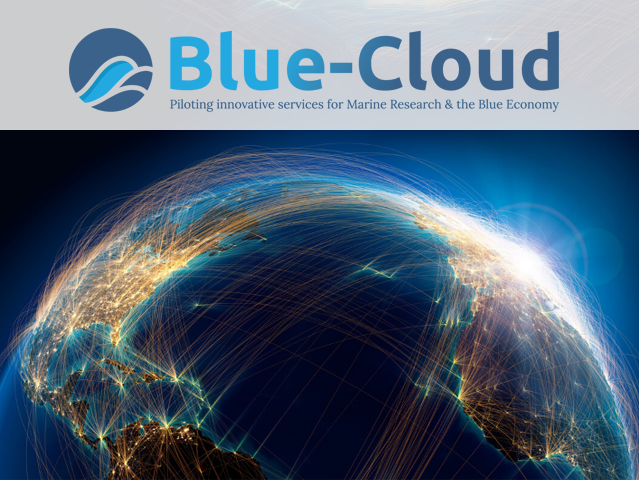Towards a global “Blue-Cloud”: Improving the knowledge of our oceans and seas and bringing them closer to citizens
SCIENCE AT OCEAN PRESERVATION SERVICE Research, innovation and data are critical to better monitor, understand, protect, preserve and sustainably manage our oceans and seas. Numerous initiatives and organisations are ongoing worldwide to facilitate the collection, access and management of data to provide scientists, agencies, the private sector and policy makers with ready-to-use tools and knowledge which can help address grand societal challenges and guide policy decisions. During the workshop, a set of examples were presented to reveal the potential of ocean and sea data, such as the results of the project on satellite detection of Sargassum in the Caribbean. HOW CITIZENS CAN CONTRIBUTE TO DATA COLLECTION AND USAGE Moderated by Toste Tanhua, GEOMAR & EuroSea Coordinator & Telmo Carvalho, IPMA, the round table discussion aimed at identifying success stories and main challenges in ocean citizen science and to make recommendations to policy makers on how to enhance it. The main conclusion was that trust and reciprocity are key to ensuring citizen involvement in science. Mechanisms to provide feedback to citizens need to be put in place to showcase the impact made by their contribution and to further stimulate their engagement. Citizens must also be equipped with easy-to-use systems to upload and download data, and encouraged to use cheap sensors to move from pure visual observations to sensor-based ones. Finally, citizen science should work with adequate support from scientists, and for this more engagement from both sides is needed, as well as best practices. INDUSTRY AND OCEAN DATA The focus of the round table was on the contribution to sustained ocean observation from Public, Private, Academic Partnerships. It was noted that industry is contributing more and more to making data available on a voluntary basis and there are already several examples where this is happening, such as in the Seabed 2030 initiative. However, policy makers need to engage with industry in order to establish fit-for-purpose measurements to be required by legislation to collect ocean data following FAIR principles. This can really help increase the availability of ocean data from industry. HOW TO CONNECT DIFFERENT DATA INFRASTRUCTURES ACROSS THE ATLANTIC Chaired by Sara Garavelli, TRUST-IT & Blue-Cloud Coordinator and Dick Schaap, MARIS & Blue-Cloud Technical Coordinator, the round table immediately recognised the value of establishing a global Blue-Cloud. But how? Top-down coordination actions at international level are needed to accelerate the establishment of a global Blue-Cloud with engagement and funding from regional authorities. In order to examine this topic in depth, the workshop participants were invited to contribute to the Blue-Cloud Roadmap 2030, a policy document that will provide recommendations for the future funding programmes and will discuss the actions needed to extend the pool of marine data infrastructures federated by the Blue-Cloud. Many expressions of interest were collected. COMMUNICATING “BLUE SCIENCE” The theme of communication was also the main topic of the last round table. An integrated communication strategy, using physical and digital channels, to promote the scientific process is needed to elevate the social value of Blue-Science. Partnerships with media and stakeholders that are often overlooked such as youth, are key to maximising impact and clearly funded and coordinated communication strategies across a range of platforms should be created. The outputs of the discussions were presented on the 6th of February 2020 to the over 600 participants of the All Atlantic Ocean Research Forum (See the presentation https://data.d4science.net/VKQa). KNOW MORE ABOUT BLUE-CLOUD https://www.blue-cloud.org/



